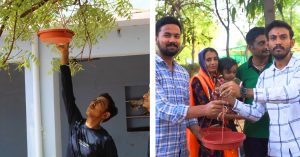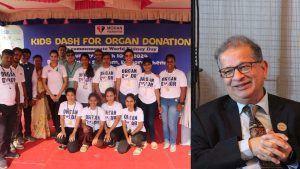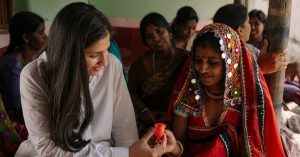From Kamathipura to Int’l Colleges: 2 Friends Changed Everything For Daughters of Sex Workers
Kranti — an NGO started by Robin Chaurasiya and Bani — provides shelter, education and opportunities for daughters of sex workers and survivors of human trafficking between the ages of 12 and 21.
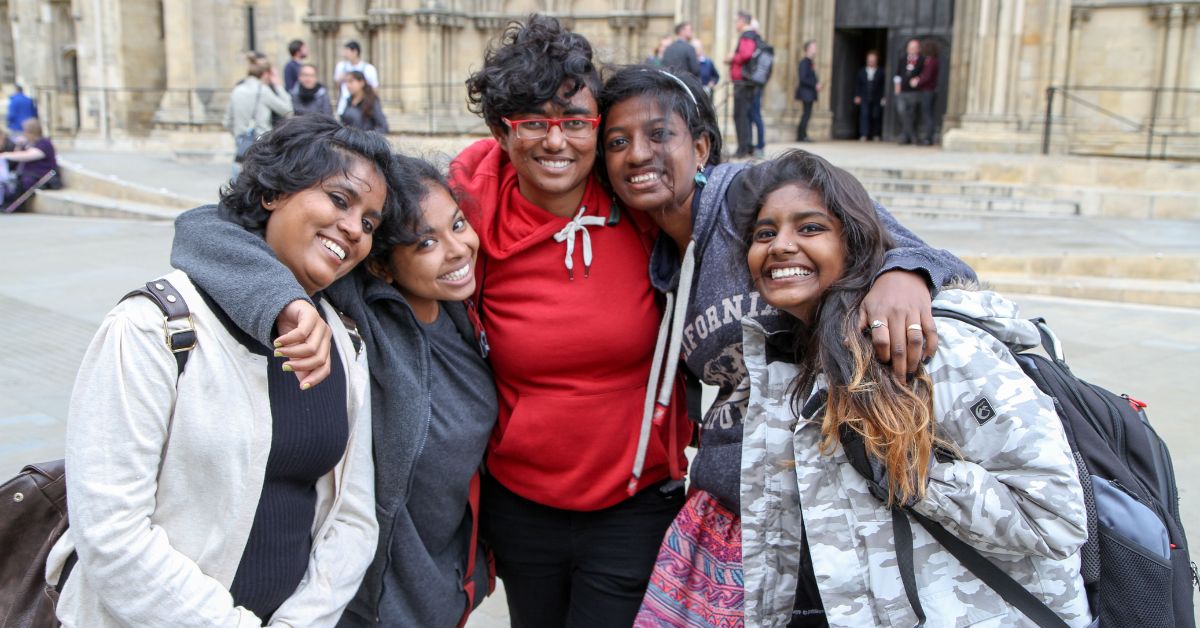
Trigger Warning: Mentions of sexual abuse, bullying
“Close your eyes and remember a situation where you wished you had said ‘no’,” said the theatre teacher to a class full of students, including Sandhya Nair. The next prompt was to ask everyone in the class to say ‘no’. Sandhya found it extremely difficult to utter this powerful two-letter word. She tried and tried, but found herself unable to do so.
Why was this simple act so challenging for the then-teenager?
Raised in Kamathipura, Mumbai, Sandhya is the daughter of a sex worker. She recalls being bullied and shamed in school when other children found out about her mother’s profession. Growing up, she was repeatedly told that “a daughter of a sex worker will become a sex worker”.
“I was taught to hate my mother and my background,” shares Sandhya in a free-flowing interaction with The Better India.
After that class, she recalls breaking down and crying out a resounding “no” that shook everyone present there. For the first time ever, she spoke out about being raped, confiding in her mentor, Robin Chaurasiya. Sandhya recalls this moment as one of the most path-breaking ones in her life at the time, when she was 18 years old.
It happened thanks to the theatre class and therapy sessions conducted by ‘Kranti’ — an NGO that empowers children of sex workers to become agents of social change.
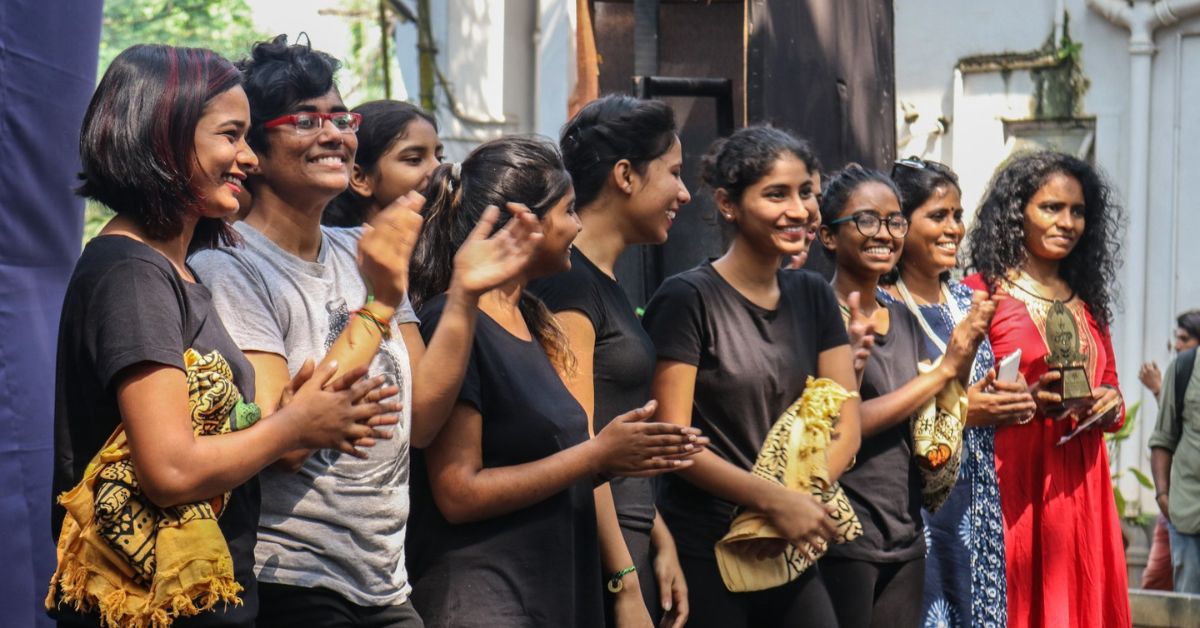
Kranti started its work at Kamathipura, known as the red light area in 2011 for daughters of sex workers and survivors of trafficking. Children here often don’t get access to a good education and opportunities to build a better life. Kranti removes this stigma associated with being the child of a sex worker and empowers these young girls to achieve their full potential, unburdening them from years of societal conditioning.
Take Sandhya’s example. From being a child who hated going to school, she is today pursuing an MA in gender and peacebuilding at the University for Peace in Costa Rica. Sandhya is one of the many girls from Kranti who are pursuing their postgraduate studies in foreign universities, and working on bringing about social change in the lives of girls like them in brothels across the country.
‘I was bullied for my dark-coloured skin and mother’s profession’
Sandhya’s mother had big dreams for her daughter. She wanted Sandhya to be educated in a private school and left no stone unturned in trying to get her admitted into one. But there was a problem: if she disclosed her profession, no school would admit Sandhya, so her mother chose to instead say that she worked as a domestic help. In that sense, the struggles of the young girl started as a child.
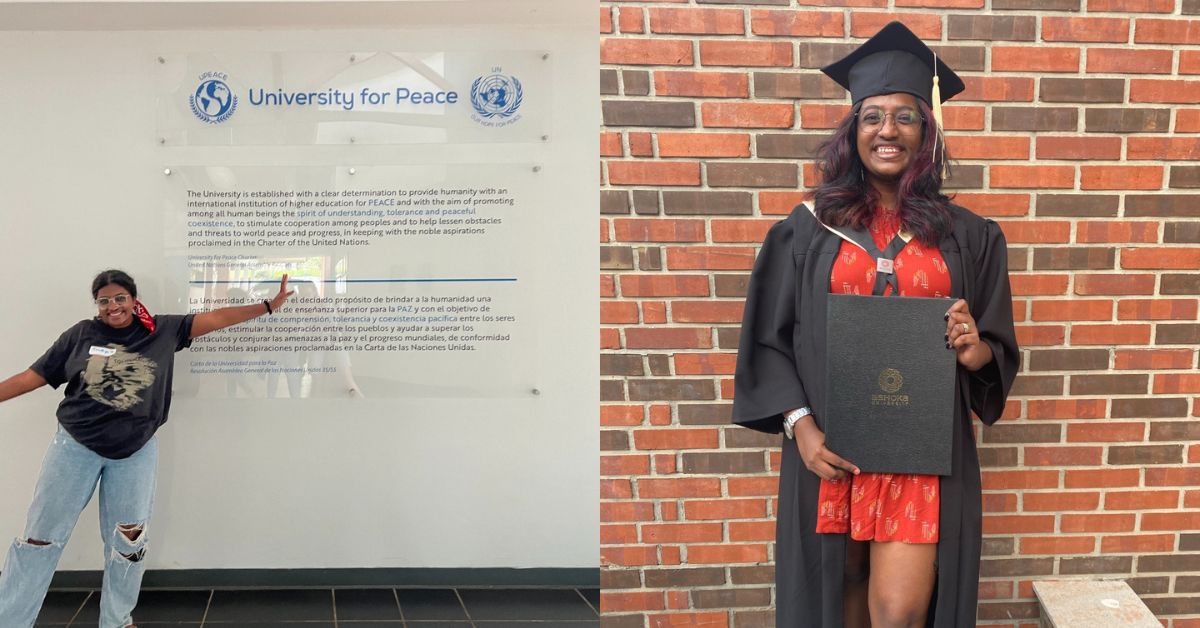
Even as her mother managed to secure admission to a reputed private school, the school years were traumatic for Sandhya. “It started with bullying over my skin colour. They would call me different names, including a ‘black crow’ and more. After a few years, they found out that my mother is a sex worker, and the bullying intensified,” she shares.
It was not just students, she recalls, but even teachers would ridicule her and turn a blind eye to the horrendous acts committed by the other students towards her. Recalling a particularly horrific incident of abuse, Sandhya states that her classmates once pushed her head into a commode and told her, “You belong here, stay here.”
She adds, “I was always made to sit on a separate bench at the back and was often pushed around in corridors and thrown into bathrooms.”
Being mistreated in school affected young Sandhya’s academic performance as well. Moreover, it didn’t help that sadly she was also experiencing abuse at home.
“I was raped multiple times when I was between 10 and 16 years old. My abuser would warn me that if I told anyone about it, no one would believe me. Every time he abused me, he told me that I deserved this. I heard the same thing everywhere that I deserved all the abuse because of my background,” she adds.
Essentially, she says she was being conditioned to hate her mother and her background. She confesses to hating herself and her mother for a very long time. As Sandhya grew up, her father fell sick, necessitating her to work part-time. She worked at a fast-food restaurant and was given the job of cleaning garbage.
The abuse continued even here when the manager found out about her background and tried to touch her inappropriately. “They think they own you,” remarks Sandhya.
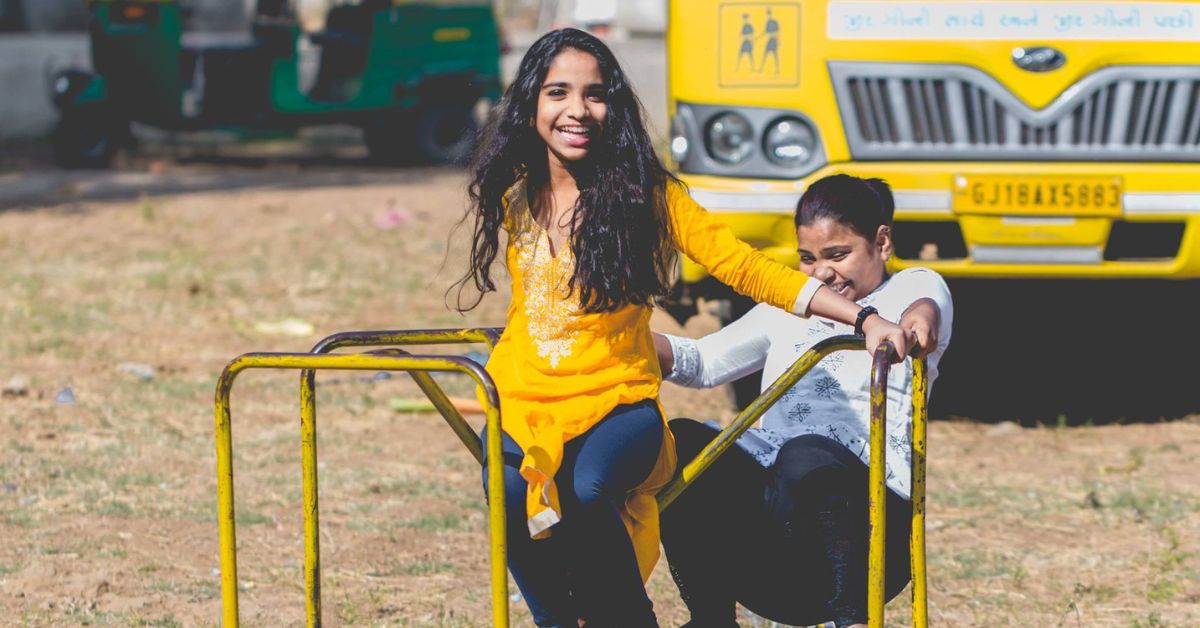
Years of abuse left her traumatised with burning questions in her head. The question of “Who deserves what?” haunted her. She even attempted to end her life thrice, she shares. “I hated myself. I was vilified and shamed for my appearance, for where I came from, and made to believe that I didn’t deserve anything good,” she reiterates.
But change was on the horizon when she was in Class 10 and moved to Kerala with her parents. This was a new world for Sandhya — a world where no one knew the work her mother did years ago — and finally, she could be free of abuse.
In Kerala, Sandhya failed to get admission into a private school as they had high cut-off marks. While she enjoyed studying and wanted to continue her education, the education system had traumatised her.
She wanted to study psychology to “know the answers” about why people behave a certain way and who deserves what. She managed to secure admission to a Government school for Class 11. Little did Sandhya know that her life would soon change forever, thanks to a newspaper cutting.
A revolution in a red light district
After working in the US Air Force, California-based Robin Chaurasiya started volunteering with NGOs across the world. In 2008, she worked with an NGO that rescued and rehabilitated girls from brothels. The problem, she found, was that after six months to a year, the girls ended up going back to the brothels, or were married.

“It broke my heart to see girls with so much potential wasting their lives due to lack of access to resources and opportunities. They were usually just married off. With another person I met at the NGO, Bani, we started Kranti in 2011, to enable these girls to achieve their full potential,” Robin tells The Better India.
The word ‘kranti’ means revolution and the girls at the NGO are called Krantikaris meaning revolutionaries. Robin realised that girls from Kamathipura and other red-light areas have immense potential to be agents of change, not ‘despite’ their background, but rather because of it.
“We believe that by providing access to the same training, opportunities, and resources as people from privileged backgrounds, they will become revolutionary leaders — more innovative, compassionate, and resilient due to their life experiences. We want to harness their power as agents of social change,” adds Robin.
Kranti provides shelter, education, support and opportunities for girls between the ages of 12 and 21. Kranti has its own school with six teachers and a curriculum that includes English, reading, writing, geography, music, creative thinking, yoga, and meditation, along with regular school subjects, health, and more.
Kranti also has a social justice curriculum which covers 20 topics such as caste, class, religion, environment, gender/sexuality, and women’s rights. The girls are taught about the problems and what they can do to solve them.
The NGO equips students to join mainstream schools, if they wish to, or help others through open schooling. While many girls have gone abroad to study, for some, just managing to stay afloat is a big win, according to Robin, which is why therapy is given so much importance here.
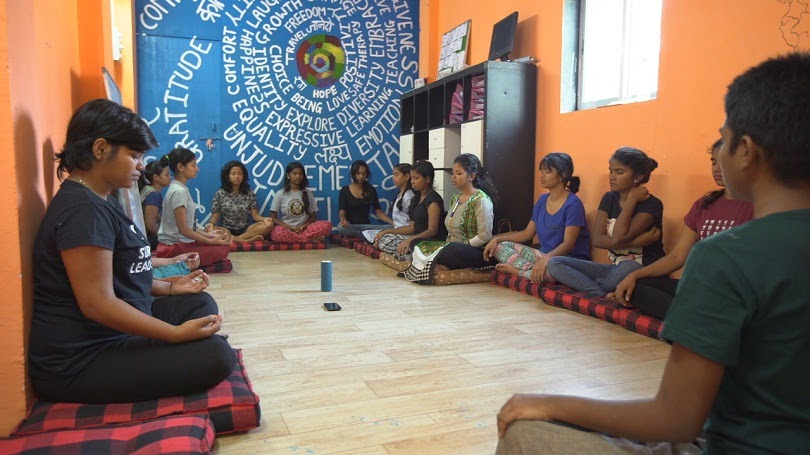
“Our job is to prepare every girl for what she wants to do,” she adds. Every girl who comes to Kranti first has to take therapy, just like Sandhya did when she joined in 2015.
The news item that caught Sandhya’s eye was of Shweta Katti, a Krantikari, who made waves across the world when she became the first girl from an Indian red-light district to secure an international scholarship and study abroad at Bard College in New York.
Sandhya immediately reached out to Shweta, who asked her to message Robin, who responded with a one-line message: “Catch the first train and come to Kranti”. It took Sandhya a good year and a half to convince her parents before she knocked on Kranti’s door in 2015.
“Everybody in Kranti has to do therapy. Therapy is the light in my life; it changed my entire worldview and enabled me to love myself,” says Sandhya, “Therapy helps us to deal with our trauma so that we don’t carry it in our higher education.”
Mental health is the biggest focus initially, shares Robin, “After years of being abused, girls start forming ideas in their head like I’m not capable of this, or I deserve to be treated like this. They feel that they don’t have the right to the good things. Watching these patterns change and overcoming these thoughts and misconceptions has been one of the most rewarding experiences,” shares Robin.
Apart from classes, every Krantikari has to do two extracurricular activities — one physical and one artistic — choosing from karate, music, dance, photography, drums and many more. The theatre also forms an integral part of every girl’s life, and they use this art form to share the story of sex workers’ lives with people across the globe.
Kranti’s play, ‘Lal Batti Express’, has been performed across India, the US and the UK. The girls also travel and conduct workshops across the world.
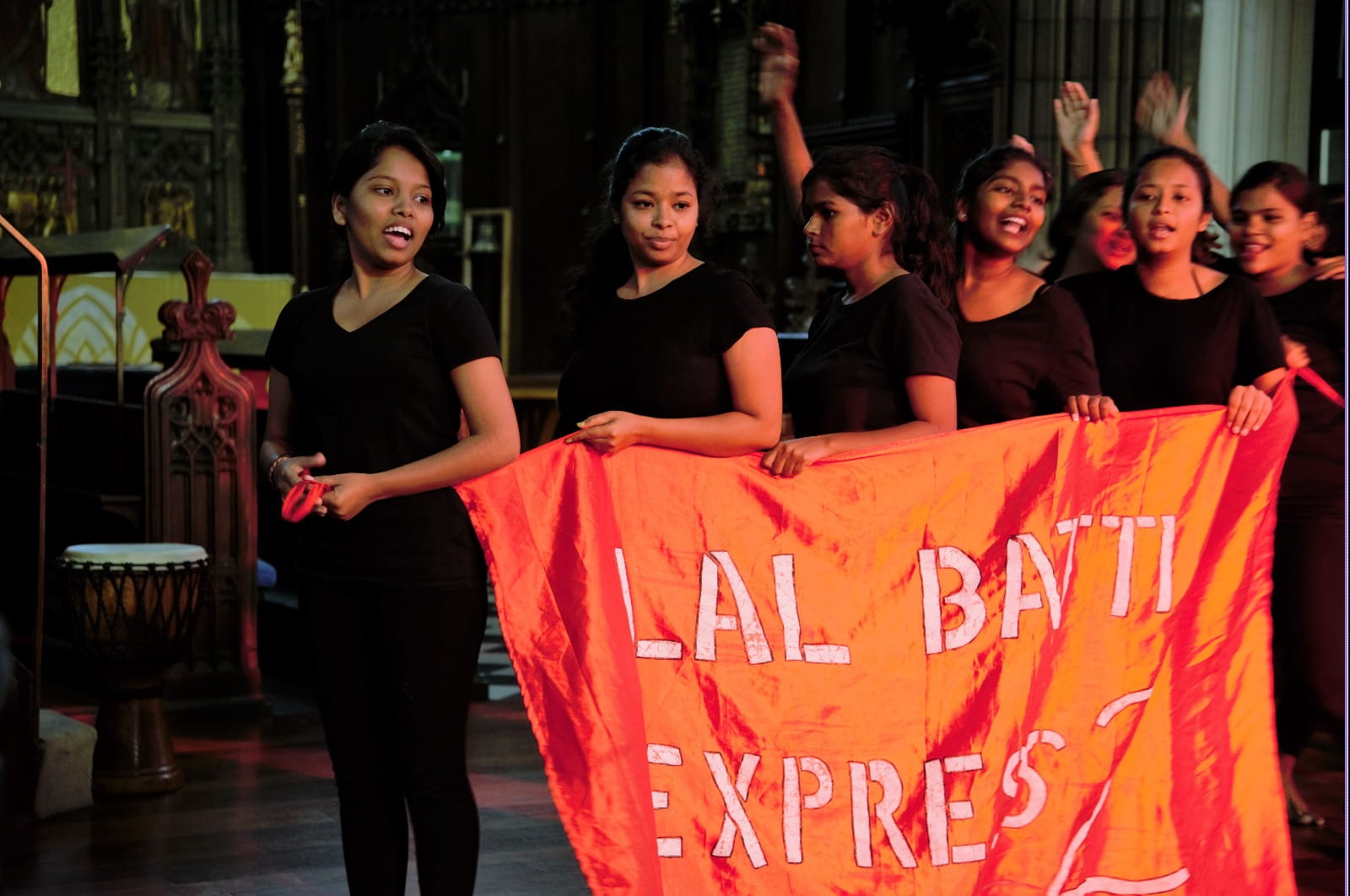
Kranti has helped over 27 girls so far, with almost 22 of them going to university. The biggest win for Robin though, has been the fact that all of them have found their calling in social change. None of them want to just “become rich” and “own a BMW”, according to Robin.
“The most beautiful part for me has been seeing them grow as human beings. Everyone is working on studying either special needs education, gender studies, nursing, counselling, or psychology. They have all found their niche in social change. They have understood their purpose, which is to be able to support others through their journeys of healing and overcoming adversity, which makes me incredibly proud,” says the social activist.
Many like Sandhya are working with NGOs like Save the Child Foundation, while others like Shweta have returned to Kranti as employees.
But have things changed in terms of societal perception? Unfortunately not, rues Robin. The fact that they had to be evicted from nine houses is telling of the ground reality.
“When we tell people we’re running a home for orphans, they are fine with it. The moment they find out the truth, everything changes. All the neighbours who’ve been accepting suddenly become cold. It’s okay to run a home for orphans but not okay for kids of sex workers?” says Robin.
This societal stigma is the reason for most girls studying abroad, where there is less judgement and more acceptance. “The girls might study at the best universities and prove their worth, yet they don’t get the respect and dignity they deserve here. They have to fight for everything, be it education, healthcare, and of course housing. Nothing is changing overnight,” she adds.
What Kranti has been able to do emphatically, is completely change the lives of these 27 girls, with 14 more joining soon. “These girls are capable of extraordinary things and they are just normal human beings who deserve the exact same rights, dignity and opportunities as anyone else on this planet,” says Robin.
Currently, Kranti has moved to a permanent home in Himachal, which can house over 50 girls and is raising funds for the same. If you wish to donate, click on the button below:
Edited by Pranita Bhat; Images Courtesy Sandhya Nair & Kranti
If you found our stories insightful, informative, or even just enjoyable, we invite you to consider making a voluntary payment to support the work we do at The Better India. Your contribution helps us continue producing quality content that educates, inspires, and drives positive change.
Choose one of the payment options below for your contribution-
By paying for the stories you value, you directly contribute to sustaining our efforts focused on making a difference in the world. Together, let's ensure that impactful stories continue to be told and shared, enriching lives and communities alike.
Thank you for your support. Here are some frequently asked questions you might find helpful to know why you are contributing?






